
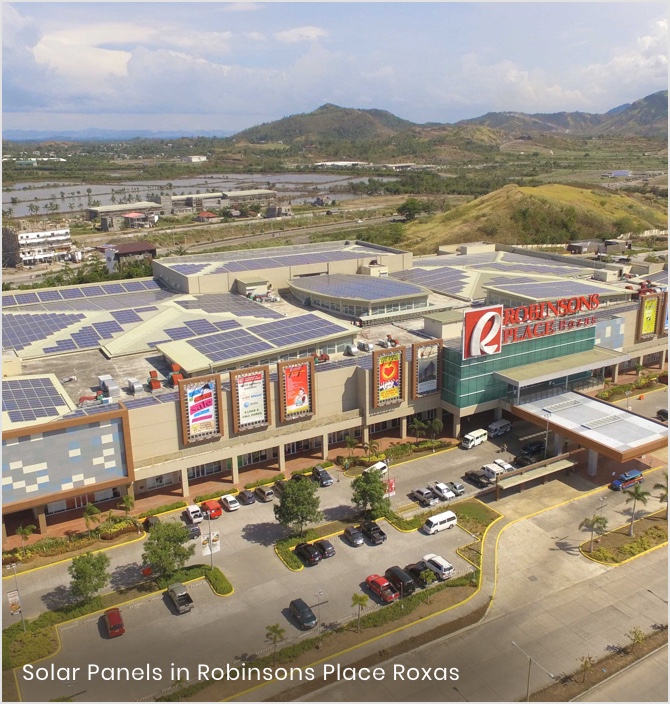
Renewable Energy: Mall Solar Facilities
RLC values energy management to promote sustainable growth for the organization. To integrate this into the company’s operations, RLC embarked on a renewable energy project to install off-grid rooftop solar PV (photovoltaic) panels in its malls nationwide. This demonstrates RLC’s commitment to protect the environment from the adverse effects of carbon emissions, and to be an industry leader in efficient energy use, alongside its other energy conservation and efficiency programs. RLC still holds the record of having the world’s largest solar-powered facility installed on a mall’s rooftop for self-consumption.
To date, RLC has completed 21 solar projects for a total of approximately 21,682.46 kWp (21.68 MWp) of solar panels installed. This is equivalent to about 306,774 trees planted and 18,554.10 tons of carbon dioxide avoided. Malls with solar facilities are located in Palawan, Iloilo, Dumaguete, Roxas, Antique, San Fernando Pampanga, Angeles Pampanga, Novaliches, Tacloban, Bacolod, Jaro, Tagum, Galleria Cebu, Cybergate Cebu, Ilocos, Pangasinan, Pavia, and Ormoc.
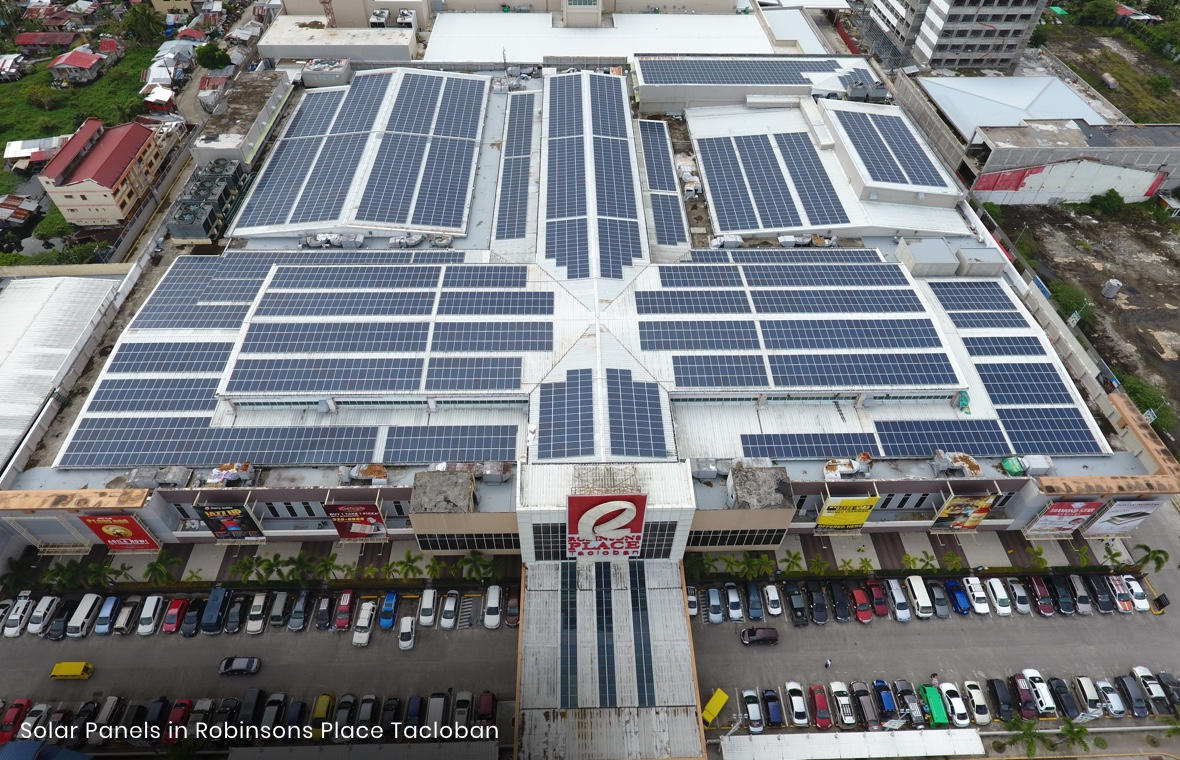
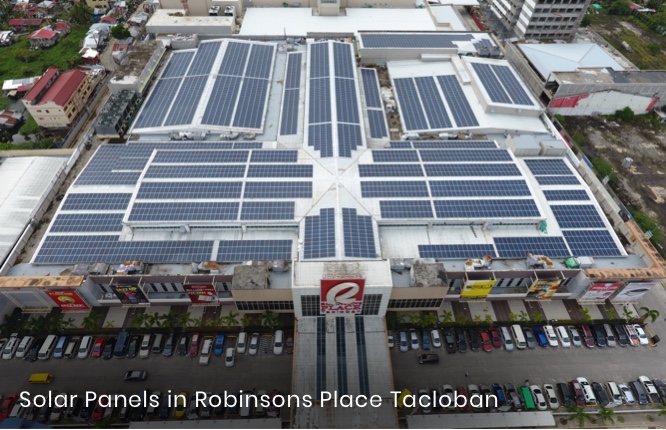
For 2020, RLC targets to install solar panels in 8 more commercial centers in different locations nationwide including General Santos, Naga, Santiago, Iligan, Butuan and North Tacloban. Aside from this, plans to roll out even more solar PV systems in both existing and future malls are already in the pipeline.
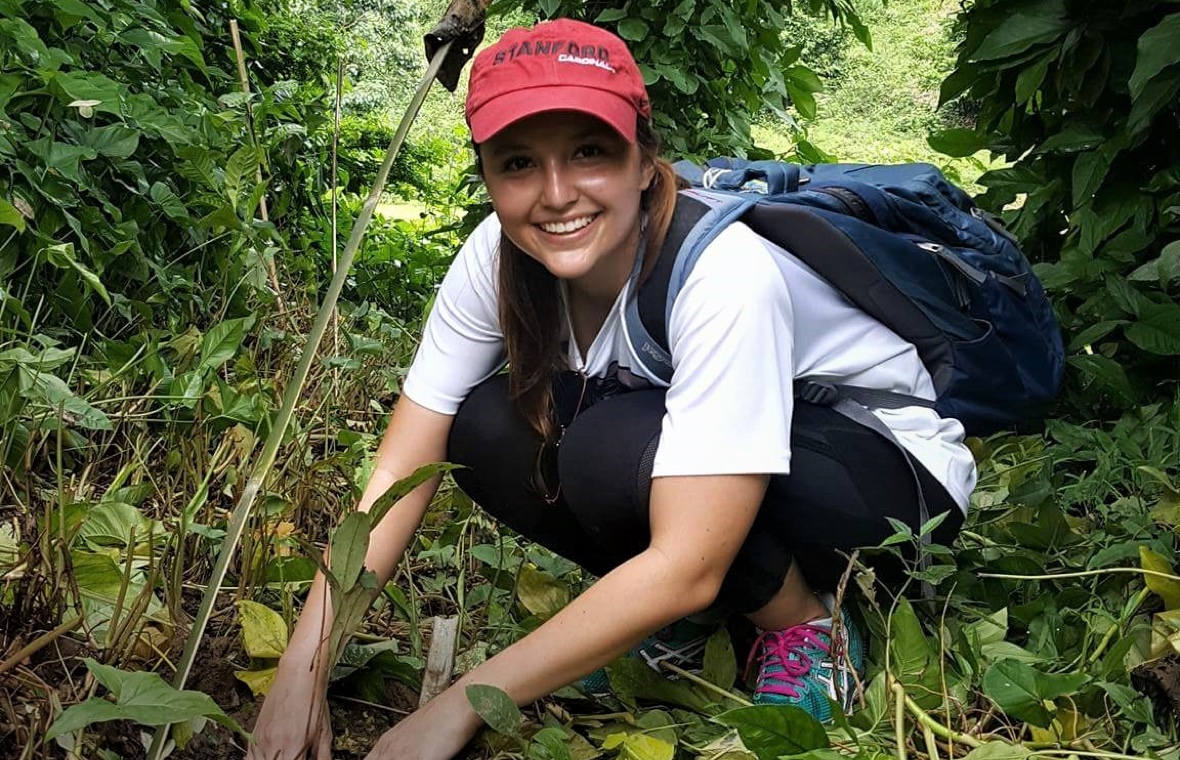
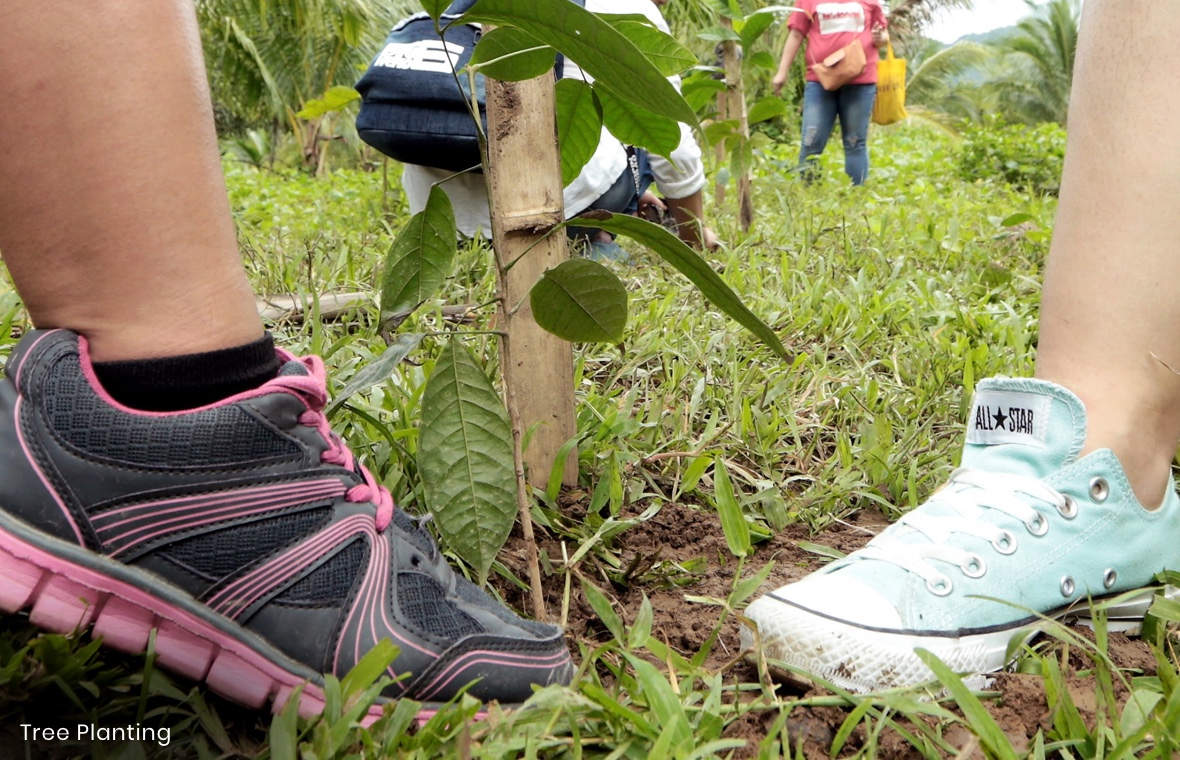
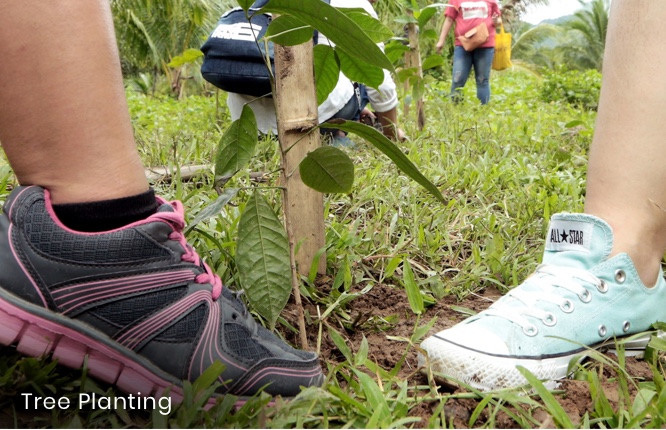
Wastewater Recovery Program
RLC recognizes the importance of intelligent use of water resources. Through the Wastewater Recovery Program, wastewater is treated, filtered, and reused resulting in zero wastewater discharge to public sewers. Several RLC hotels and malls now use 100% recycled wastewater for their toilets and irrigation requirements.
Robinsons Malls Recycling Market
The Robinsons Malls Recycling Market and Shoot Your PET Bottles project provide waste-recovery systems through a once-a-month recyclable-buying fair involving Robinsons tenants, customers, other business establishments, schools, religious groups, and city residents. The project aims to instill environmental stewardship amongst city residents and businesses, while providing additional income to households and organizations. Through this project, waste-to-landfill diversion is achieved through segregation campaigns, recycling practices, and the trash-for-cash incentive mechanism.
Robinsons Place Ilocos, Robinsons Place Malolos, Robinsons Town Mall Malabon, and Robinsons Novaliches actively promoted the initiative. More than 140 tons of solid waste recyclables consisting of cartons, PET bottles, papers, tin, aluminum, cans and even old appliances were brought to the Weekend Recycling Market to prevent landfill pollution. The project was executed in partnership with the respective Local Government Units and DENR-Environment Management Bureau.
Robinsons Malls Weekend Recycling Market contributes to the multiple solution approach in waste management by creating public awareness on the importance of the preservation of the environment through promotion of the REUSE, REDUCE, RECYCLE attitude in the malls’ respective communities. It is RLC’s way of creating shared value for all involved stakeholders – the local businesses, customers, local organizations, and neighbouring communities.
Aside from the Weekend Recycling Market, Robinsons Place Novaliches also partnered with Tetra Pak Philippines to launch the Panalong Easy sa UBC project. The project promotes proper waste management and carton recycling through the collection of used beverage cartons from junk shops and mall customers. It likewise aims to educate the public on the positive impact of waste recycling activities and to impart lifestyle changes that may contribute to environmental preservation.
Bote Ko, Palit Ko
Robinsons Malls Iloilo partnered with the local government and the Provincial Environment and Natural Resources Office (PENRO Iloilo) for “Bote Ko, Palit Ko”, an eco-brick project that champions the adoption of the Alternative Recycling Technology (ART) through plastic bottle redemption activities. The campaign targeted schools and universities, including mall customers who donated collated plastic bottles or “trash in a bottle” in exchange for eco-friendly items from the mall. Collected plastic bottles were used to create planter boxes, and low non-load bearing walls for schools.